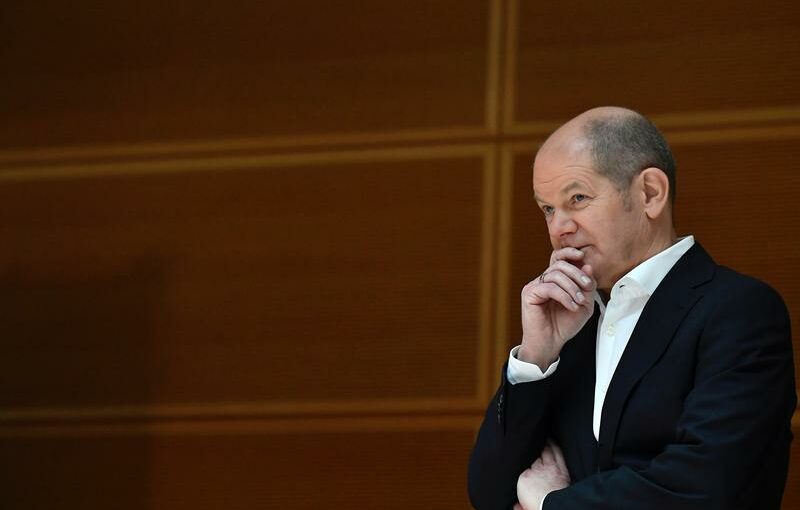BERLIN (Reuters) – Finance Minister Olaf Scholz promised on Wednesday to do whatever was needed to enable Germany to spend its way out of a coronavirus-induced economic slump, as the government backed an extra budget that will lift new borrowing to a record high.
Approval by Chancellor Angela Merkel’s cabinet of the 60 billion euro ($71 billion) supplementary budget will raise this year’s net borrowing figure to more than 240 billion euros.
Scholz underlined Berlin’s readiness to continue massive deficit spending as Europe’s largest economy struggles to contain a third wave of COVID-19 cases.
“We will continue to do whatever is necessary. That’s expensive – but doing nothing would lead to even higher costs,” he told journalists during a budget presentation.
“More tests and more vaccinations are the key instruments now to get us out of this crisis,” Scholz said, raising hopes that Germany should soon be able to speed up its so far relatively slow vaccination programme.
Scholz also proposed a draft budget for next year with net new debt of 81.5 billion euros, for which parliament would have to suspend for the third year running a debt brake that limits new borrowing to 0.35% of gross domestic product.
The new plans mean that Germany’s overall pandemic-related borrowing could exceed 450 billions euros from 2020 to 2022.
Scholz, who is running as the centre-left Social Democrats’ candidate to become chancellor in September’s federal election , said Germany would try to “grow out of its debt” by reducing its debt ratio with a hopefully robust economic recovery.
But he said more fiscal measures would probably be needed and this should include a fairer tax system – a clear reference to his party’s election campaign pledge to increase taxes for the rich.
The question how Germany should reduce its debt pile over the coming years while maintaining high public investment is likely to be one of the most heated topics of the election campaign.
Scholz’s medium-term budget plans envisage a return to the constitutional debt brake and, with it, limited deficit spending from 2023.
The increased spending means that Germany’s debt-to-GDP ratio will rise from below 60% in 2019 to around 75% this year – still the lowest among G7 countries.
($1 = 0.8455 euros)
Source: Read Full Article
